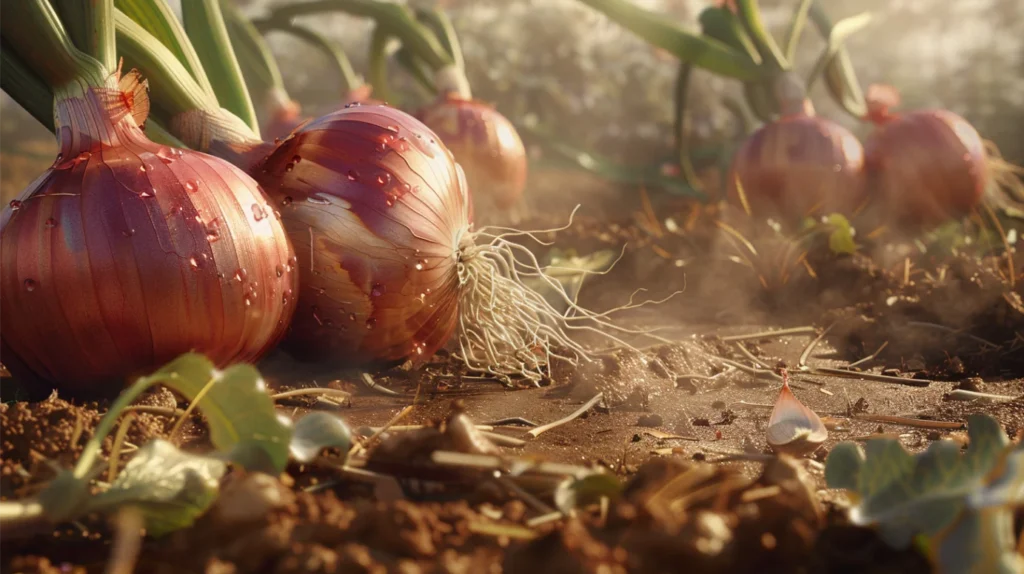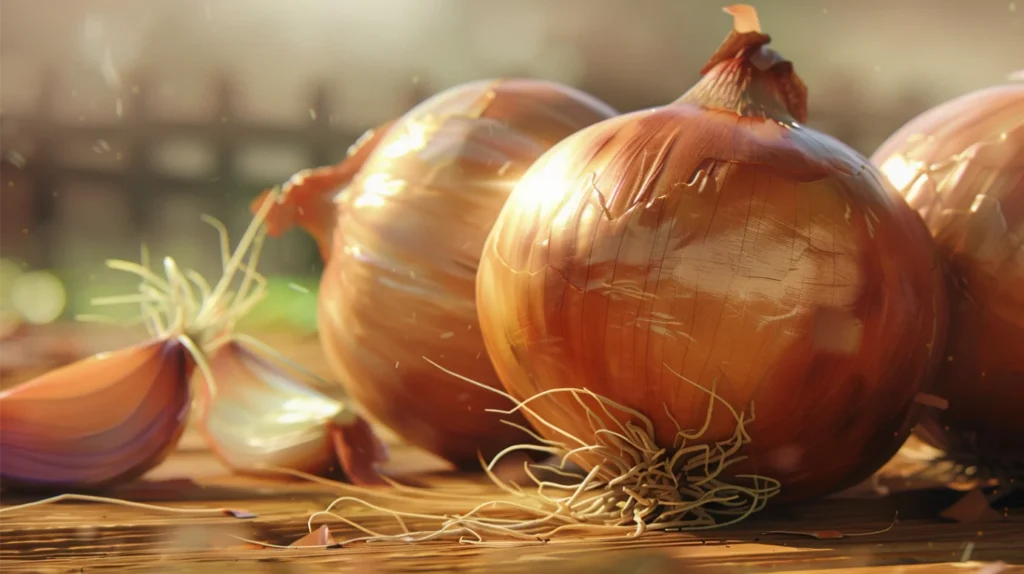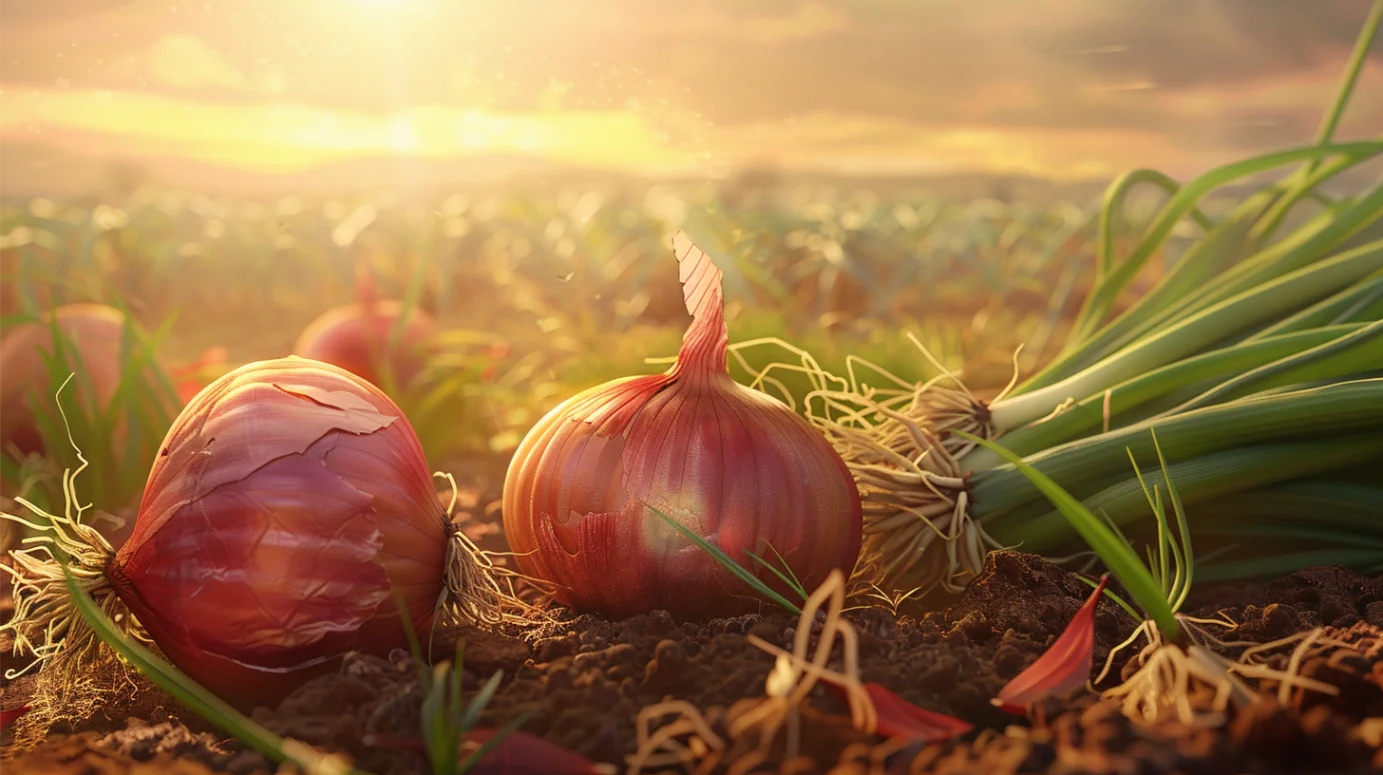Onions are a staple in kitchens around the world, and for good reason. These humble vegetables are not only versatile and delicious but also packed with nutrients and health benefits. In this blog post, we’ll explore the fascinating world of onions, from their history and varieties to their culinary uses and nutritional value.
A Brief History of Onions
Onions have been cultivated for thousands of years, with evidence of their use dating back to ancient civilizations in Egypt, Greece, and Rome. They were valued not only for their flavor but also for their medicinal properties. In fact, ancient Egyptians believed that onions had the power to ensure a safe passage to the afterlife, and they were often buried with the dead.
Throughout history, onions have played a significant role in various cultures and cuisines. They were introduced to the Americas by European explorers in the 15th century and quickly became a staple in the New World. Today, onions are grown and consumed in nearly every corner of the globe.
Onion Varieties

There are many different types of onions, each with its own unique flavor profile and culinary uses. Yellow onions are the most widely used onions, with a strong, pungent flavor that mellows when cooked. They are ideal for soups, stews, and sautés. Red onions, with their vibrant color and slightly sweet flavor, are perfect for salads, sandwiches, and grilling. White onions have a milder flavor than yellow onions and are often used in Mexican and Latin American cuisine. As the name suggests, sweet onions have a milder, sweeter flavor than other varieties. They are delicious raw in salads or caramelized for a sweet and savory dish. Shallots are small, elongated onions with a delicate, slightly garlicky flavor and are often used in French cuisine. Green onions, also known as scallions, are young onions with a mild, fresh flavor and are used as a garnish or in stir-fries and salads.
Culinary Uses
Onions are an essential ingredient in countless dishes around the world. They add depth, flavor, and texture to a wide variety of recipes, from simple sandwiches to complex curries. Onions can be used as a base for soups, stews, and sauces, sautéed or caramelized as a topping for burgers, steaks, or pizza, or enjoyed raw in salads, salsas, and sandwiches. Pickled onions make for a tangy, crunchy condiment, while roasted or grilled onions offer a sweet, smoky flavor. Onions can also be used as a flavoring for dips, spreads, and dressings. No matter how you slice them, onions are a versatile and indispensable ingredient in any well-stocked kitchen.
Nutritional Benefits

In addition to their delicious flavor, onions are also packed with nutrients and health benefits. They are low in calories but high in vitamin C, vitamin B6, and potassium. Onions also contain quercetin, a powerful antioxidant that has been shown to have anti-inflammatory and anti-cancer properties. Some of the potential health benefits of onions include lowering the risk of heart disease and stroke, reducing inflammation in the body, boosting the immune system, improving digestive health, and regulating blood sugar levels.
Onion Tips and Tricks
When working with onions, there are a few tips and tricks to keep in mind. To reduce tears when cutting onions, chill them in the refrigerator for 30 minutes before slicing. To remove the smell of onions from your hands, rub them with lemon juice or stainless steel. To store onions, keep them in a cool, dry, dark place with plenty of air circulation, and avoid storing them in the refrigerator, as this can cause them to become soft and moldy. If you need to quickly peel pearl onions, blanch them in boiling water for 30 seconds, then transfer them to an ice bath. The skins will slip right off.
Conclusion
From ancient civilizations to modern kitchens, onions have been a beloved and essential ingredient for thousands of years. With their versatile flavor, numerous varieties, and impressive health benefits, it’s no wonder that onions are a staple in cuisines around the world.
So the next time you slice into a pungent yellow onion or savor the sweet, mild flavor of a Vidalia, take a moment to appreciate the humble but mighty onion. With its rich history, culinary versatility, and nutritional power, this global staple truly is a vegetable to celebrate.
